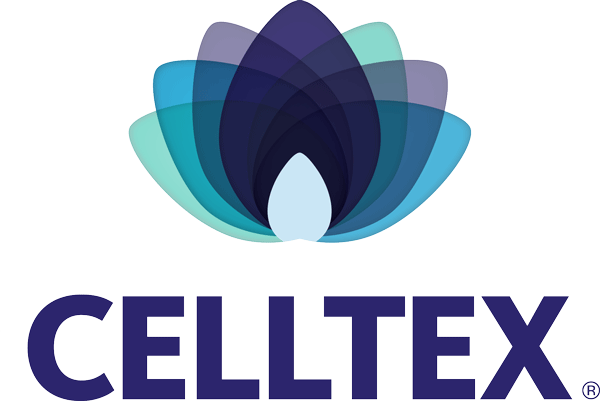Celltex News
Promising research about stem cell therapy’s effect on coronavirus
Today, researchers are looking at mesenchymal stem cells (MSCs) and stem cell therapy as a viable treatment for COVID-19. So far, limited testing has proved extremely promising. Therefore, Celltex Therapeutics is currently discussing with the FDA to be able to provide stem cell therapy to clients in the United States.
Celltex Plans to Launch Program to Use Mesenchymal Stem Cells for COVID-19-Related Symptoms Under an Existing Regulatory Study
HOUSTON — March 16, 2020 — Celltex Therapeutics Corporation (“Celltex”), a Houston, Texas-based biotechnology company founded in 2011 and focused on spearheading breakthroughs in regenerative medicine using adult, autologous Mesenchymal Stem Cells (“MSCs”), today announced that it has begun active discussions with the FDA regarding a study using MSCs against Coronavirus (“COVID-19”)-type symptoms. Celltex has researched safety and efficacy from the use of MSCs for those suffering from injuries, pain and maladies associated with autoimmune, vascular and other debilitating diseases, including inflammatory lung conditions, pneumonia and chronic obstructive pulmonary disease (COPD).
Celltex, a pioneer in autologous MSC technology, is known for its MSC technology and its partnership with the Texas A&M University Institute for Regenerative Medicine. This includes over thirty years of MSC research and work of Darwin J. Prockop, MD, PhD and Ashok K. Shetty, PhD, Institute for Regenerative Medicine, Department of Molecular and Cellular Medicine, Texas A&M University College of Medicine. Dr. Shetty is a co-principal investigator on a Celltex research partnership with Texas A&M University, who has authored the editorial entitled, “Mesenchymal Stem Cell Infusion Shows Promise for Combating Coronavirus (COVID-19) – Induced Pneumonia,” Aging and Disease, Volume 11, No. 2, 2020, regarding a new study published by Aging and Disease which reported that intravenous administration of clinical-grade human MSCs into patients with coronavirus disease 2019 (COVID-19) resulted in improved functional outcomes. The study, “Transplantation of ACE2- Mesenchymal Stem Cells Improves the Outcome of Patients with COVID-19 Pneumonia,” Volume 11, No. 2, 2020, pp.216-228, Leng Z. et al., demonstrated that intravenous infusion of MSCs is a safe and effective approach for treating patients with COVID-19 pneumonia, including elderly patients displaying severe pneumonia. COVID-19 is a severe acute respiratory illness caused by a new coronavirus named severe acute respiratory syndrome coronavirus 2 (SARS-CoV-2).
Intellectual Property
Celltex’s intellectual property (IP) portfolio encompasses over 1,500 clients, who have received over 9,000 MSC therapies for various diseases without incurring any adverse events. These diseases include acute respiratory distress syndrome (ARDS), inflammatory lung disease, influenza and other viruses similar to coronavirus (COVID-19). Celltex’s GMP manufacturing processes provide Celltex with unique commercial advantages. Celltex has purchased the intellectual property rights and holds an Exclusive License Agreement with Texas A&M University System that includes several A-1 Exosome Patent Applications covering composition of matter and methods claims in the U.S., Europe, Mexico and Saudi Arabia.
References
- Shetty, A. K. “Mesenchymal Stem Cell Infusion Shows Promise for Combating Coronavirus (COVID-19) – Induced Pneumonia,” Aging and Disease, Volume 11, No. 2, April 2020, Editorial
Link: http://www.aginganddisease.org/EN/10.14336/AD.2020.0301 - Leng, Z. et al. “Transplantation of ACE2 – Mesenchymal Stem Cells Improves the Outcome of Patients with COVID-19 Pneumonia,” Aging and Disease, Volume 11, No. 2, April 2020, pp.216-228
Link: http://www.aginganddisease.org/EN/10.14336/AD.2020.0228
About Celltex
Celltex Therapeutics Corporation is a Houston, Texas-based biotechnology company founded in 2011 and the leader in its field focused on spearheading breakthroughs in regenerative medicine using adult, autologous (one’s own) Mesenchymal Stem Cells (MSCs). The Company uses its own technology in its Houston-based laboratory to isolate, cryopreserve and grow hundreds of millions of autologous superior grade MSCs for therapeutic use to improve overall wellness and quality of life for those suffering from injuries, pain and maladies associated with autoimmune, vascular and other degenerative diseases.
Celltex’s headquarters and primary laboratory are located at 2401 Fountain View in Houston, Texas 77057. It is recognized as the leader in commercial MSC banking both in the United States, as well as in Mexico. The headquarters and laboratory operations of its wholly-owned Mexican subsidiary are located in Hospital Galenia, in Cancún, Quintana Roo, Mexico. Hospital Galenia is a private modern hospital that holds three award accreditations from the field of health: two International and one National, with advanced medical technology, a vanguard infrastructure and a highly trained and well-accredited team.
Celltex sponsors a 400-person Phase IIb clinical trial ongoing in Mexico at Hospital Galenia authorized by COFEPRIS (the Mexico equivalent of the FDA), as well as a Phase 1-2a IND for rheumatoid arthritis with the FDA.
For more information, please visit www.celltexbank.com or call (713) 554-6802. For an image and b-roll, please download here.
More Recent News
Exploring Regenerative Medicine Beyond Stem Cell Therapy
For many, stem cell therapy is to regenerative medicine what Google is to internet searches. Yet, there are other procedures within the regenerative medicine field that may be recommended depending on the health concern being addressed.
In this article, we explore several regenerative medicine options, including platelet-rich plasma (PRP), bone marrow aspirate concentrate (BMAC), stromal vascular fraction (SVF), and exosomes.
Read MoreWhat Makes MSCs So Promising? A Deep Dive on Mesenchymal Stem Cells
Present in the body throughout one’s lifespan, adult Mesenchymal Stem Cells (MSCs) can be used in many types of regenerative medicine. This article explores how MSCs work in the body and what makes them suitable for therapeutic application.
Read More
